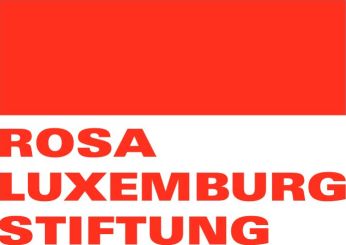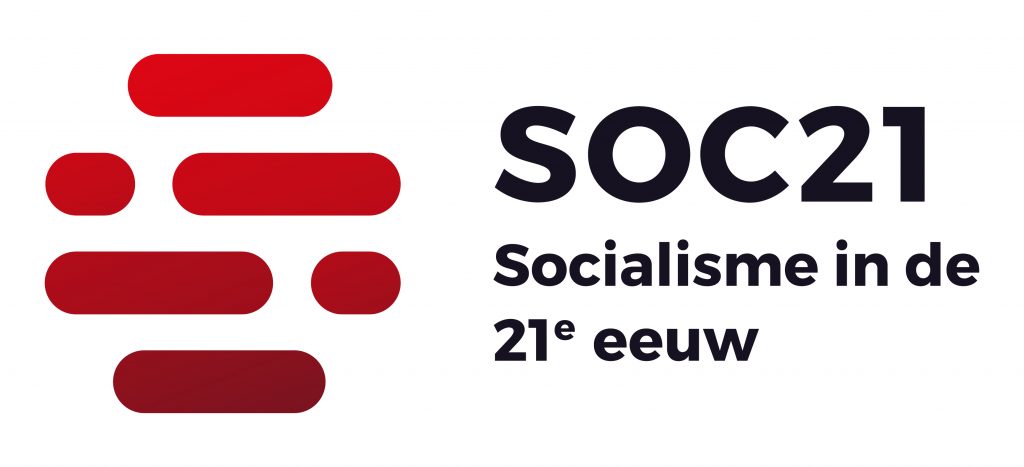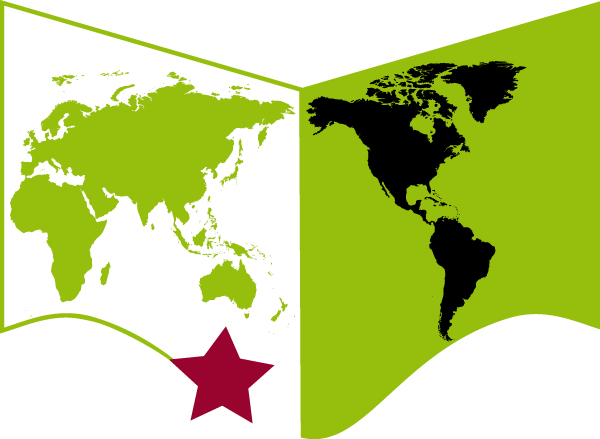A second workshop on the Imperial Mode of Living has taken place as a collaboration between SOC21 and the Rosa-Luxemburg-Stiftung. Co-sponsored by the Dutch SOWS and the IIRE. Coordinators: Ulrich Brand (Vienna), Markus Wissen (Berlin) and Marcel van der Linden (Amsterdam).
In september 2020 we organized a Conference on International Solidarity and Relational Inequality centered on the concept of the Imperial Mode of Living. Now a second workshop in our IMoL series: Historicizing the Imperial Mode of Living has taken place on 3-4 September in Amsterdam. This time the organisation is a collaboration between SOC21 and the Rosa-Luxemburg-Stiftung with support of the Dutch SOWS and the IIRE. Coordinators: Ulrich Brand (Vienna), Markus Wissen (Berlin) and Marcel van der Linden (Amsterdam).


Speakers include:
Michael Brie, Bob Jessop, Torkil Lauesen, Andrea Komlosy, Nora Räthzel, Stefan Schmal, Ngai-Ling Sum, Christa Wichterich.

International Institute for Research and Education (www.iire.org), Lombokstraat 40, 1094 AL Amsterdam.
Tram 14 from Central Station, direction Flevopark. Stop Javaplein. Walk 200 meters back. The second street to the right is Lombokstraat.
Given the constraints by the COVID-19 measures (1.5 metre distancing), we will proceed with a physical conference (old style) with a limited number of participants and a simultaneous webinar.
You can find the Conference papers of the 2020 conference here.
You can find the Video Registrations of the 2020 conference here.
The Papers presented for the 2021 conference can be found here.
The Video Registrations of the 2021 conference can be found here.
| 14.00-14.45 | Opening by the organizers |
| 14.15-14.45 | What do we already know about the history of IMoL and what are the most important gaps in our knowledge? (Marcel van der Linden, Amsterdam-Netherlands) |
| 14.45-15.00 | Comments (Nora Räthzel, Umeå-Sweden) |
| 15.00-16.00 | Discussion |
| 16.00-16.30 | Break |
| 16.30-16.50 | The IMoL and the global South (Stefan Schmalz, Berlin) |
| 16.50-17.10 | The IMoL and the global South (Ngai-Ling Sum, Lancaster) |
| 17.10-17.30 | The IMoL and the global South (Sabrina Fernandes, Brasilia/Berlin) |
| 17.30-18.15 | Discussion |
| 10.15-10.45 | The Rise and Crisis of Fordism and the IMoL (Bob Jessop, Lancaster) |
| 10.45-11.00 | Comments (Michael Brie, Berlin) |
| 11.00-12.00 | Discussion |
| 12.00-13.30 | Break |
| 13.30-14.00 | IMoL and the present global situation (Ulrich Brand, Vienna, and Markus Wissen, Berlin) |
| 14.00-14.15 | Comments (Christa Wichterich, Bonn) |
| 14.15-14.30 | Comments (Torkil Lauesen, Copenhagen) |
| 14.15-15.15 | Discussion |
| 15.15-16.00 | Break |
| 16.00-17.00 | Overall discussion: what did we learn from this workshop, how should we continue, what could be the contours of a common research agenda? (Input by Nora Räthzel, Umeå) |
We kindly ask those of you who are backed by an institution to contribute € 200. If you are less fortunate but can afford it we ask for a contribution of € 50. If you can not afford it, participation is free.
As we will be spending more than usual due to the dual format (both online and real life), extra funds for the conference are very welcome. Please send your donations to:
St. Socialistisch Onderzoekscollectief
BIC: SNSBNL2A
IBAN: NL94 SNSB 0787 4947 12
In 1918 the Tatar Bolshevik Mirsaid Sultan-Galiev wrote: “If a revolution succeeds in England, the proletariat will go on oppressing the colonies and pursuing the policy of the existing bourgeois government, for it is interested in the exploitation of those colonies.”[1] Sultan-Galiev anticipated a discussion that has rapidly gained influence in recent years: to what extent do wage earners in the advanced capitalist countries benefit from the exploitation of wage earners in less developed countries? And what are the ecological consequences of this global inequality? The term “Imperial Mode of Living” (IMoL) articulates this problem. It refers to dominant patterns of production, distribution, and consumption that are deeply rooted in the everyday practices of the global North and increasingly in the emerging countries of the global South.
The assumption is that in certain historical phases, and building on a coherence between norms of production and of consumption, a hegemonic—or in other words—broadly accepted and institutionally secured mode of living can emerge that is deeply rooted in the everyday practices of people, safeguarded by the state, and associated with certain concepts of progress – computers must be ever more powerful and food and clothing ever cheaper – regardless of the social or ecological conditions under which they are produced.
Modes of production and consumption that become hegemonic in certain regions or countries can be generalized globally in a broken manner and with considerable gaps in time and space. That process is associated with concrete corporate strategies and interests in capital valorization, trade, investment, and geopolitics; with public policies and purchasing power, as well as with concepts of an attractive mode of living in the rich countries that predominate in the societies into which these modes develop as result of a world market. ‘Generalization’ does not mean that all people live alike, but rather that certain, deeply rooted concepts of the ‘good life’ and of societal development are generated and are reflected in the everyday life of a growing number of people, not only symbolically but also materially. The symbolic dimension is important because what is at issue is not only the economic coherence of the regime of accumulation, but also the everyday practices and orientations which serve as the latter’s cultural foundations. Furthermore, the IMoL is not socially neutral, but is transmitted via global inequalities and geographically specific class and gender relations and along ethnic or ethnicized lines.
A multi-phased development
The mode of living of the global North is ‘imperial’ in as much as it is based on a principally unlimited appropriation of resources, space, labour capacity, and sinks elsewhere—secured politically, legally, and/or by means of violence.
Phase 1: We can already speak of an ‘imperial mode of living’ starting with the era of colonialism in the sixteenth century maturing in the liberal capitalist global system of the nineteenth century. However, during these centuries, it was limited to the upper classes, i.e. it was not hegemonic in the sense of shaping the reproduction and the everyday practices of the majority of the population.
Phase 2: Only after the development of Fordism in the twentieth century did this mode of living become widespread in the sense described above. The capitalist relationship with nature was rooted in the everyday practices of the majority of the population of the global North and expressed through the imperial mode of living. The development of productivity and prosperity in the metropoles was based on a world resource system very favourable to the global North. The immense growth during the period of Fordism was dependent on the vast consumption of natural resources—particularly fossil energy—and of global pollutant sinks as well as on a patriarchal division of labour. A key factor was a permanent relative overabundance of cheap natural resources in global raw materials and agricultural markets. The military and political dominance of the United States since World War II ensured the relative stabilization of global political conditions, which was reflected by secure access to cheap resources such as oil.
Phase 3: The crisis of Fordism. Fordism could primarily be seen as a form of intensive accumulation that permitted an increase in relative surplus value by means of the permanent intensification of the labour process and increases in labour productivity. Its crisis was a contested process of restructuring since the late 1970s, where some alternatives in the sense of a “solidary” mode of living appeared even in the capitalist centres, and which has brought forth a post-Fordist mode of development. During the 1980s, and especially since the 1990s, extensive forms of accumulation, such as the flexibilization and partial expansion of daily, weekly, and annual work times, a crisis of reproduction and the global expansion of the number of wage-dependent people, became more important.
Phase 4: More recently, the post-Fordist neoliberal phase of capitalism seems to have entered into a major crisis. The contradictions of a finance-driven accumulation regime in the capitalist centres became manifest in the financial crisis 2008/2009. What followed was a socio-economic stabilisation in parts of the world that went hand in hand with an impoverishment of other parts (even within European regions). Under the surface of a selectively recovering economy, secular changes occurred, changes that have become even more obvious, or have been accelerated, by the Corona crisis: geopolitical and -economic shifts, structural transformations triggered by digitalisation, the crisis of liberal democracies, and the ever more pressing ecological destructions resulting from the social deepening and spatial spread of the IMoL causing new eco-imperial tensions. It is far from clear if capitalism will survive this crisis in the long run. If it does, it will be different from what we have known so far. One scenario is the authoritarian stabilisation of the imperial mode of living. It is a reactionary strategy pursued by right-wing and extreme right governments worldwide that would probably aggravate social inequality, environmental destructions and international tensions. The various Green Deal or Green New Deal approaches that have gained strength with the recent rise of a new climate movement constitute an alternative. They often draw on the idea of an ecological modernisation, which could process the environmental contradictions of capitalism in some parts of the world, without however overcoming them. A third scenario, lighting up in various progressive struggles around the world, consists of transforming the economy into the direction of a feminist and democratic eco-socialism. It would strengthen, and equally distribute, care work, decommodify and enhance social and physical infrastructures and put them under democratic control. As such it would form the nucleus of a process that transcends capitalism and the IMoL in the long run.
A periodization like this enables us to order the historical material, and put it in perspective. At the same time, however, this obviously also carries a risk of over-systematization, where turning points are exaggerated, and continuities are overlooked. Every attempt at the periodization of a phenomenon necessarily assumes that the development of the phenomenon contains both continuities and discontinuities. If nothing changed in the course of time, a periodization would not make any sense. Inversely, if everything changed all the time, purely by accident, no periodization would be possible. Periodizing assumes the simultaneity of relative continuity and relative discontinuity. Relative continuity implies not that there is a constant recurrence of events but rather that, even when major changes occur, a definite structural coherence remains visible. Inversely, relative discontinuity means not that arbitrary changes occur but that a disturbance of the existing relationships occurs according to some kind of identifiable logic of events.[2]
Naturally, various periodizations can be applied side by side. Fluctuations in economic growth, demography, technology, consumer behavior, trade union structures, ecological frontiers, or cultural value systems can all have different temporalities.[3] Changes within capitalism moreover do not occur everywhere at the same time: sometimes they generalize in the course of time, and in the process often change their form; sometimes they occur unevenly and in combination with other changes. That is one reason why it is almost impossible to mark off the start and finish of periods in an exact way. Periodizations “seldom fit neatly and exactly; historical events resist periodization into watertight compartments.”[4] It seems wise to allow for the possibility of transition periods, in which the old and the new co-exist with each other.
We should also beware of methodological nationalism: we should not take as a point of departure the stages of development in separate regions and states, but focus on the connections between regions and states.[5] Then it becomes possible as well to understand cultural, economic, and political transfers between different parts of the world, which often result in combined and uneven developments, in which “innovations” in one place are combined with “regressions” in other places. The trans-Atlantic slave trade offers a good example. Already in the seventeenth century it enabled very modern and profitable plantations in the Caribbean, partly based on a strong stimulation of the consumption of sugar and coffee in the North, yet simultaneously promoted impoverishment in parts of Africa. There are nevertheless also moments which hit multiple parts of the world almost simultaneously, though with a different level of impact in separate regions. Global economic crises (1857–9, 1873–9, 1929–33, 1966–7, 2007–8) have been such moments.
Transitions and transformations
The Imperial Mode of Living reveals how domination, power and violence are normalised in neo-colonial North-South relations, in class and gender relations, and by racialised relations in the practices of consumption and production, so that they are no longer perceived as such. We can only overcome the Imperial Mode of Living if we understand the dynamics of its history: why and how it came into being, how it transformed over time, which historical alternatives existed and how the latter were marginalised or absorbed. We propose, in view of the above, to discuss this question at a two-day workshop with a double focus: the reconstruction of the dynamics of separate phases of its development and the mechanism underlying the transition from one phase to the next.
[1] Quoted in: Alexandre Bennigsen and Chantal Lemercie-Quelquejay, Islam and the Soviet Union (London: Pall Mall Press, 1967), p. 114. Sultan-Galiev was expelled from the Bolshevik party in 1923. See also: https://en.wikipedia.org/wiki/Mirsaid_Sultan-Galiev
[2] Bob Jessop, “What follows Fordism? On the Periodisation of Capitalism and its Regulation,” in: Robert Albritton (ed.), Phases of Capitalist Development. Booms, Crises and Globalizations (Basingstoke: Palgrave Macmillan, 2002), pp. 282–299.
[3] See, for example, Georges Duby, “L’histoire des systèmes de valeurs,” History and Theory, 2 (1972), pp. 15–25; Peter J. Hugill, World Trade since 1431. Geography, Technology, and Capitalism (Baltimore: Johns Hopkins University Press, 1993); Peter N. Stearns, “Stages of Consumerism. Recent Work on the Issues of Periodization,” Journal of Modern History, 69, 1 (March 1997), pp. 102–117; Marcel van der Linden, Workers of the World. Essays toward a Global Labor History (Leiden: Brill, 2008), ch. 12; Edward B. Barbier, Scarcity and Frontiers: How Economies Have Developed Through Natural Resource Exploitation (Cambridge: Cambridge Univ. Press, 2011). A theoretical exploration in: Helge Jordheim, “Against Periodization: Koselleck’s Theory of Multiple Temporalities,” History and Theory, 51, 2 (May 2012), pp. 151–171.
[4] Meribeth E. Cameron, “The Periodization of Chinese History,” Pacific Historical Review, 15, 2 (June 1946), pp. 171–177, at 177.
[5] Andrea Komlosy, “Work and Labour Relations,” in: Kocka and van der Linden, Capitalism, pp. 33-69.